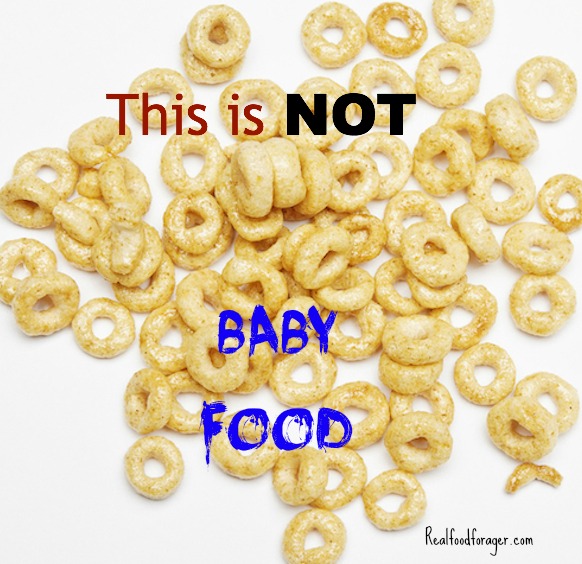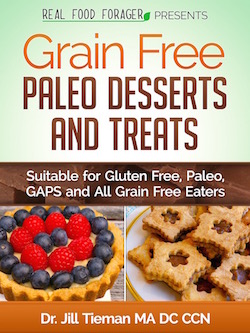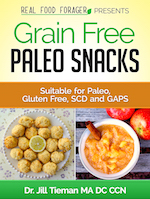When I see a mom feeding her little baby cheerios I get crazy. I have all to do to not say something. As my husband says to me, “you did it again didn’t you – you said something…”. But how can I NOT say anything when I know that it may be setting her child up for future problems?
According to Dr. Alesio Fasano, (at the Gluten Summit this week), gluten is not digestible by humans whether they have symptoms or not.
The structure of gluten is unusual and cannot be properly broken down by humans. We cannot break down gluten because of the amino acids prolamine and glutamine. He said,
We need to appreciate that we did not evolve to deal with these proteins. As a matter of fact, for almost 99,9% of humankind’s evolution our ancestors have been gluten-free.
With the advent of agriculture, we started to cultivate grains and hybridize them. It has only been 10,000 years.
Change in Gluten Containing Grains Over Time
The amount of gluten per dry weight, in modern wheat, has been increasing over time — this makes the digestibility much more difficult.
Presently 30 – 40% of dry weight is gluten — it used to be less than half. Soaking and/or sprouting them does not change the fact that there is gluten in the grain.
Introducing Gluten to Infants
Is timing of introduction important? We know for sure that introducing gluten too early is detrimental — however, we do not have prospective longitudinal studies — they take long and we are in the process of this.
Mother’s intuition is a key factor here. You know when your baby is interested and ready for solids. It’s important to get the correct nutrition advice for introducing foods to infants as infants are born with leaky gut.
Experience in Sweden Teaches Us
In the mid 1970’s there was a popular infant formula maker in Sweden, who introduced a new formula that was fortified with wheat. Swiss pediatricians were making the following recommendations:
- 0 – 2 months feed breast milk or formula (without wheat)
- 2- 4 months feed the new formula fortified with wheat — to get ready for solids
- after 4 months — start baby food
Because of this recommendation, that generation of children had a prevalence of celiac that was 7 – 9 % higher than previous generations. When the health officials noticed this, they retired the formula and the next generation of children did not develop celiac at those higher rates.
Clearly, this indicates that introducing wheat at such a young age is detrimental. Frankly, I don’t think introducing solids at 4 months is a good idea at all. Furthermore, wheat or rice would be the last thing on my list.
According to Sally Fallon in her book, The Nourishing Traditions Book of Baby and Child Care, soft boiled egg yolk is a very nutrient dense first food that is easy and appropriate for an infant.
No Risk to Delay Introduction of Gluten
Dr. Fasano’s group followed 700 kids at risk for celiac from birth. They found that postponing gluten introduction carries no increased risk and delaying introduction may lower the risk of developing celiac disease for a period of time. Delaying introduction may simply postpone the onset of celiac disease. However, more time is needed to make further conclusions.
However, delaying the onset is beneficial and will increase the quality of life for the child — bones, nerves, tissues and optimal brain development would certainly benefit.
I don’t think that, at least in the forthcoming future, we’ll have the chance to make a choice between interventional medicine and preventive medicine. We’ve got to go with preventive medicine.
Register Here for the Gluten Summit
Celiac — The Perfect storm
In February 2012 in the journal, Clinical Reviews in Allergy and Immunology a paper called Leaky gut and autoimmune diseases was published. The author, Dr. Alessio Fasano,, had been researching this topic in relationship to celiac disease and gluten sensitivity. The review paper he wrote is focused on the role of impaired intestinal barrier function (leaky gut) on autoimmune pathogenesis. In short, he is trying to get to the real causes of autoimmunity.
In this paper, Dr. Fasano proposes a new theory that suggests that autoimmune disease is not only preventable, but also reversible. Amazing!
Fasano’s new theory explains how an autoimmune condition may develop. It involves a perfect storm of three conditions:
- Increased intestinal permeability (leaky gut)
- A genetic predisposition to autoimmunity
- An exposure to the environmental trigger (in this case gluten)
What this means is that people who have a leaky gut, as well as the genetics for celiac disease, can develop autoimmunity when they eat gluten. This will cause intestinal damage. The increased intestinal permeability that is part of the leaky gut, allows the environmental trigger (which in this case is gluten) to access the body and this triggers the genetic predisposition.
Conventional understanding of celiac included variable numbers 2 and 3, but instead of leaky gut, the third variable was the presence of circulating autoantibodies to the enzyme tissue transglutaminase. Using these antibodies excludes many people who do not test positive for them – however, they still have problems with gluten.
What Dr. Fasano has done is bring research and documentation to the concept of leaky gut. This is very important because now conventional medicine has to take notice.
Ancient Grains, Versus Modern Grains
There is no study that has looked at ancient grains versus modern grains. Ancient grains have a lower gluten content but there is no data that this will help gluten sensitive people. However, it would make sense to use a low gluten grain if the quantity of gluten can drive a response. According to Dr. Fasano,
Gluten is, nutritionally speaking, useless. We don’t need that. And again, we evolved as a species without gluten.
Impact of Intestinal Permeability
Beyond digesting food, the intestine has a key function — it is the place of the greatest possible interface with the environment. It is the most sophisticated immunological component in out body and it is controlled by a neuroendocrine network.
The key function is to interface with the environment where information is exchanged in a tightly controlled and coordinated manner. Our state of health or disease is the combination of our genes and our environment.
We are the component of these two worlds: the genes that we’re born with and the environment that surrounds us. And the gut is the point of entry in which these two elements, they really meet.
The permeability of the gut, and therefore which molecules pass through, will determine the outcome of what we are biologically.
Register Here for the Gluten Summit
Loss of Permeability
Certain factors will affect the ability of the gut to control which molecules come in. These are, infections, dysbiosis, pollutants, chemicals, and genetically engineered food.
From this loss of control we can develop food allergies, autoimmunity, chronic inflammation and all of these will depend on our genetics.
The environment you raise your children in will have a direct impact on how they develop.
We are in an epidemic of autoimmune disease for the last 40 – 50 years. This is not due to genetics, this is because we are changing our environment so fast our genetics cannot change and adapt to it.
We are bombarded with toxins in the environments and at the same time too clean.
Rational Approach to Autoimmunity Through the Gut
You can actually help prevent the development of autoimmunity by nurturing the gut. Gut permeability is the battlefield where genes and environment meet. The gut has a single layer of cells that keep foreign particles out. The check points are called the tight junctions and these are regulated and controlled by zonulin.
If there is dysfunction to the barrier, there will be a breach to the barrier and an immune response.
The instigators are protein or fragments of proteins. If the check points are working fine, there is no way the proteins or fragments can get in. So, now there is a third element — the gut barrier function.
You can treat autoimmunity by treating gut barrier function. This is the science behind healing the gut protocols for autoimmunity — like GAPS, SCD and Autoimmune Paleo.
The Microbiome is Key
It is a parallel civilization. The composition of the bacteria in our guts is the key factor impacting intestinal physiology. The microbiome helps the intestinal immune function to mature. Without it being a cooperative community, we develop inflammation. New technology is allowing us to study and understand its complexity.
We cannot culture 99% of the bacteria in the gut and yet we still we find 12,000 different species of microbes in the gut. Our microbiome is 100 times more genetically complex than the human genome. Our microbiome affects how our genes are expressed.
Even if you’re genetically skewed to develop these problems, it’s not definite that you will. It depends on the microbiome. And the microbiome composition is highly, highly influenced by the environment.
Babies inherit their microbiome from a vaginal birth — C-section babies will pick up bacteria from care givers. A babies microbiome also starts with the first sip of breastmilk.
Influences on the Microbiome
These are, nutrition, pollution, chemicals, drugs (antibiotics), radiation and triggers from the environment. Foods we select on a daily basis with have a dramatic impact on our microbiome.
I learned some startling information about gluten, celiac and leaky gut!
The Gluten Summit is going on now but there is still time to register and enjoy the daily free interviews!
Register Here
This Summit could be a game changer for you or someone you know, Please share the link below for the opportunity to hear some of the most distinguished scientists and speakers at the cutting edge of gluten research today.
Register Here
If you are as excited about this Summit as I am and don’t want to miss any of the fabulous information, you may purchase the Summit Digital Package for a mere $67.00.
Hurry! These prices will increase when the Summit is over!
If you’re like me and plan to watch these interviews more than once, you’ll want to:
Order here
Read more about celiac disease here.
Read more about the microbiome here.
Shared at: Thank Your Body Thursday, Tasty Traditions, Fight Back Friday, Healing With Food Friday












